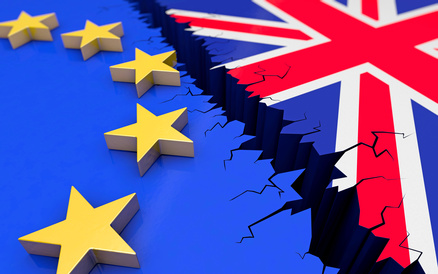

This week is significant as Brexit negotiations resume on intellectual property (IP) issues. It is imperative that those who are negotiating with the EU on IP this week fully understand, and will not neglect, the potentially calamitous situation for UK designers if they lose IP unregistered design protection in EU27. Unless there is a level playing field in terms of simultaneous publication, UK designers will be severely disadvantaged. Reciprocity must be the aim.
Why?
It will no longer be possible for UK designers, whose designs are first exhibited in the UK, to claim the EU unregistered design right protection in the other 27 member states of the EU.
Often, aptly named “the Cinderella right”, it was unsurprisingly left out of the Withdrawal Bill leaving a lack of clarity on the status of unregistered design rights on which most UK designers rely. The value that designs bring (£85.2billion) to the UK economy, jobs and prosperity is rarely heralded. 80% of the UK’s 1.5 million designers and those employed in design skills are SME and have less than 10 employees. Yet, innovation exists in the everyday products produced by designers and creators that benefit consumers, business and society. The currency of design in future trading relationships with Europe needs certainty in protection across borders and is more vital than ever now.
This poses the question, “Why do so many designers rely on unregistered design rights when registering a design is so cost-effective?” The simple answer it that it is almost impossible for lone, micro and SME designers to enforce their rights because of cost and time implications. With IP lawyers’ hourly costs (between £175 and £600+) and average UK designers’ hourly earnings of £26.13, it is no surprise. Together with IPEC cases sometimes taking a couple of years, for most SME creators, it is time prohibitive. Litigation is the luxury of the few.
Additionally, The Small Claims Track for which ACID successfully campaigned a few years ago still does not hear registered designs some 10 years after it was created. Odd, but unsurprising, given design’s place in the pecking order of IP rights by Government and policy makers.
The passage of time gives perspective. For design, in the context of IP rights, is it further on in 2020 than it was 20 years ago? In 2011, the then Prime Minister David Cameron (post-Hargreaves) lamented that designs policy had been neglected.
One major leap forward, however, has been that the intentional infringement of a registered design was made a crime in 2014, but this only addresses part of the issue because most UK designers rely on unregistered design rights.
Rob Law, MBE., MD of Magmatic t/a Trunki
“My company Magmatic Ltd T/A Trunki designs and manufactures children’s travel products. We employ 80 people at our Head office in Bristol and manufacturing facility in Plymouth. Our turnover is approximately £8.5million, all of which is generated by products protected by registered and unregistered design. If we lose protection of our unregistered rights in 27 member states, and are unable to enforce our rights, we predict approximately 25% of our sales could be lost. This could effectively quarter our turnover and lose approximately 20% of our workforce,”
Bruce Bell, Marketing & PR Director Gallery Direct
“As one of the largest suppliers of Home Furnishings in the UK, who’s foundation is based on cutting edge design, we are keen to ensure that any future legislation relating to EU and UK unregistered designs rights are protected. We also trade directly with European businesses, so it is important we have clarity and fairness that protect our IP, including design. This principle is fundamental to the ongoing success of our business and we ask that ACID continue to discuss with the UK government the best ways to maintain and enhance this protection.”
ACID has consistently written to the Prime Minister to put the UK’s precious IP at the top table with a Minister who does not have shared responsibilities. A move towards the US IP framework is vital where the IP Czar has direct access to the White House and IP is articulated as one of the nation’s most important assets underpinning the economy.
Read ACID’s contribution in Intellectual Property Magazine
Spread the Word

Latest News





Newsletter Sign-Up
| Cookie | Duration | Description |
|---|---|---|
| cookielawinfo-checkbox-analytics | 11 months | This cookie is set by GDPR Cookie Consent plugin. The cookie is used to store the user consent for the cookies in the category "Analytics". |
| cookielawinfo-checkbox-functional | 11 months | The cookie is set by GDPR cookie consent to record the user consent for the cookies in the category "Functional". |
| cookielawinfo-checkbox-necessary | 11 months | This cookie is set by GDPR Cookie Consent plugin. The cookies is used to store the user consent for the cookies in the category "Necessary". |
| cookielawinfo-checkbox-others | 11 months | This cookie is set by GDPR Cookie Consent plugin. The cookie is used to store the user consent for the cookies in the category "Other. |
| cookielawinfo-checkbox-performance | 11 months | This cookie is set by GDPR Cookie Consent plugin. The cookie is used to store the user consent for the cookies in the category "Performance". |
| viewed_cookie_policy | 11 months | The cookie is set by the GDPR Cookie Consent plugin and is used to store whether or not user has consented to the use of cookies. It does not store any personal data. |